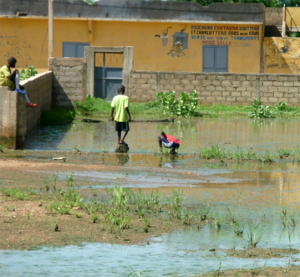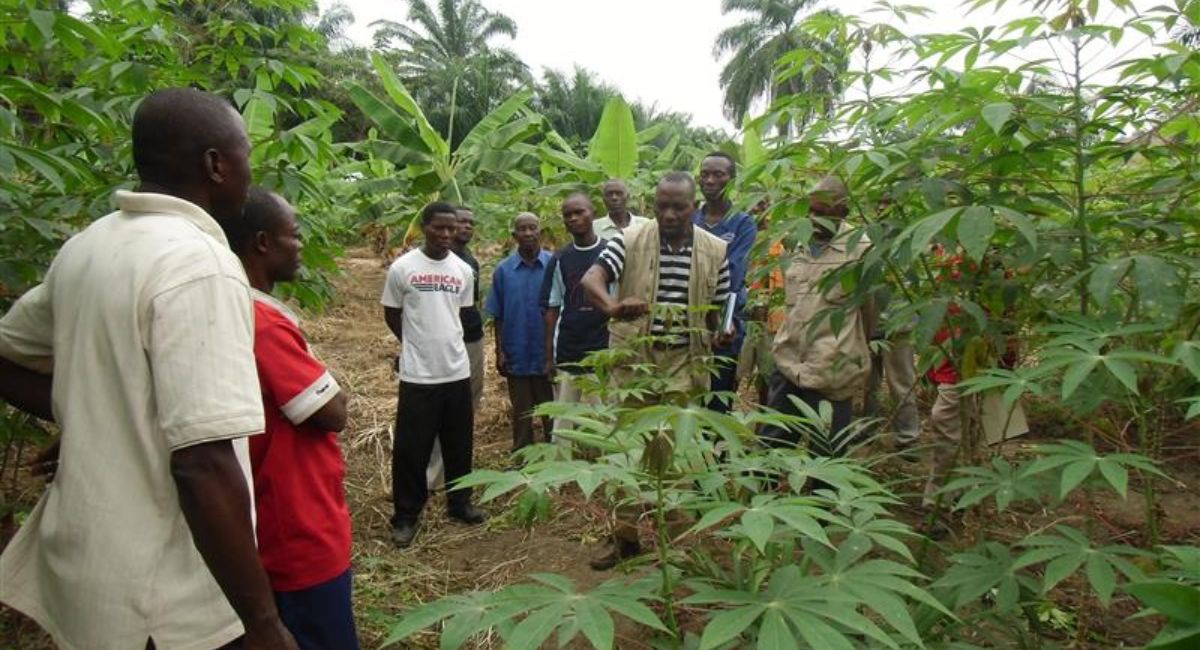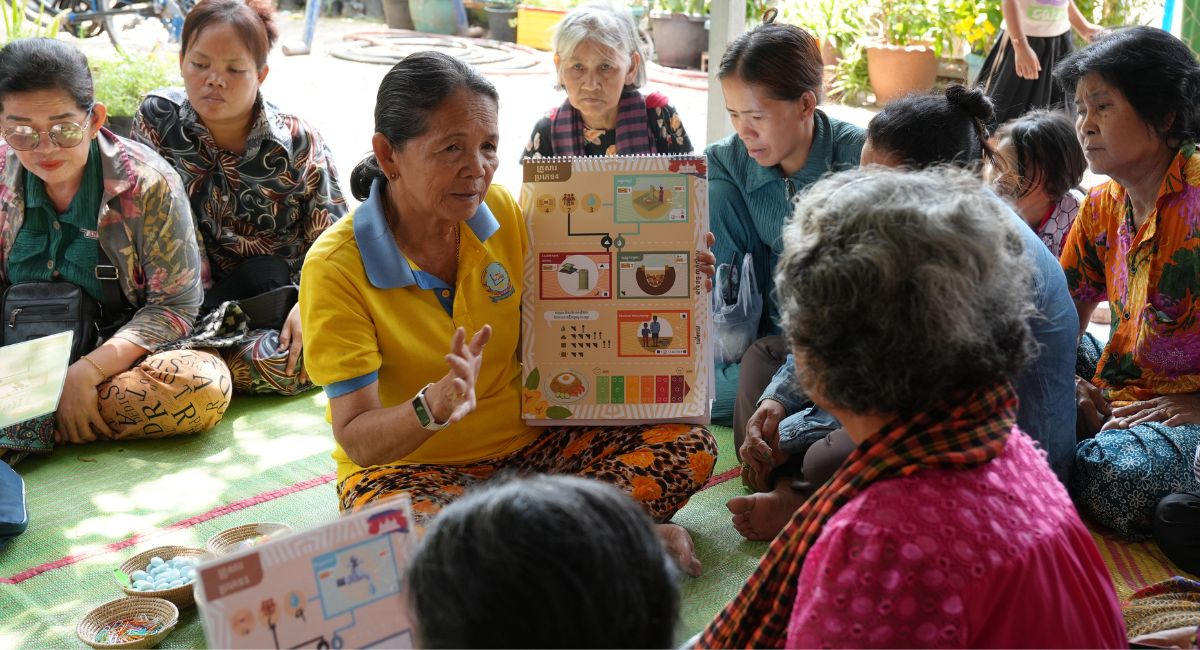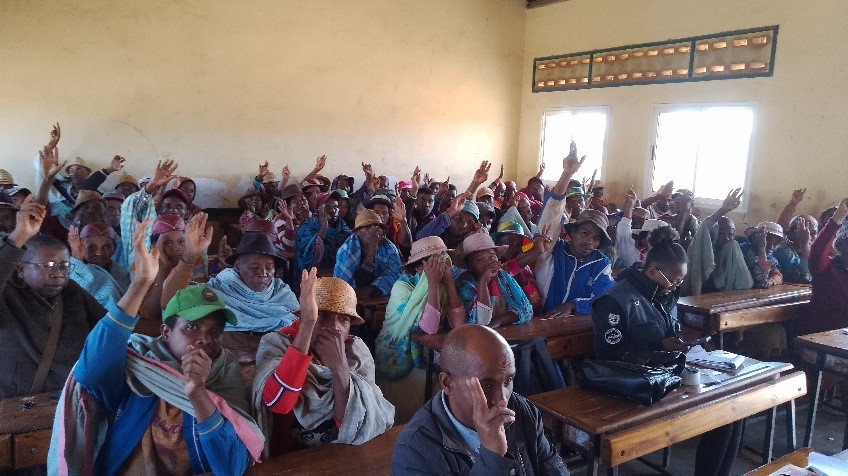Following on from actions already conducted in other countries, GRET is seeking to use its experience to improve sanitation conditions in the Republic of Congo, and more particularly in the capital, Brazzaville. Overview of the main challenges and areas on which GRET intends to work…
GRET has been present in the Republic of Congo since 2001. In 2012, it provided support to the Municipality of Dolisie – the third largest city in the country – to implement a waste management service (in French). In 2014, it worked on the structuring of the waste pre-collection sector in Brazzaville, providing support to local authorities via the professionalization of pre-collection operators.
Challenges and realities
In Congo, 20.9 % of latrines located in urban areas are considered as “unimproved” (Processus d’élaboration de la PNEA – État des lieux du secteur, 2016) and do not meet sanitary standards. In Brazzaville, numerous plots have toilets. However, the latter are often shared between several households and are not in line with any technical references:
- There are no faecal sludge management services ensuring collection and processing that meet sanitary and environmental imperatives. When pits are full, new ones are dug. The services of informal manual pit cleaners with no protective equipment are frequently called on. Some inhabitants also take advantage of rainfall to empty the content of their pits. In Brazzaville, two sludge treatment facilities were built but are not operational. Waste-water – water used for cleaning, shower water, etc. – is also often disposed of directly into the street.
- Runoff water management is a crucial issue in Brazzaville. Where drainage systems exist, they are often hampered with waste, preventing runoff water from flowing through the system. This generates a high level of erosion, particularly as the soil is sandy. Frequent use of waste as a filler to repair erosion, to facilitate accessibility, or to raise the level of flood lands, generates environmental and sanitary problems and does not solve any difficulties over the long term. Inhabitants work together to find short term solutions to protect their plots before the rainy season. Some vetivers are planted to avoid erosion, but these are marginal.
- Discussions with neighbourhood chiefs demonstrate that they are often ill-equipped to deal with these situations, in a context where the sectoral framework for managing waste-water and runoff is vague. Neither the municipality of Brazzaville nor the district municipalities have inventories or planning documents for waste-water or runoff, which complicates management of the latter.
An integrated, complementary response
Improving access to sanitation for the entire sector
Sustainably improving access to sanitation necessitates taking the entire sector into account and considering the various types of waste-water produced by households. Solutions focusing on individual or public sanitation facilities – to collect black and grey waste water – should be envisaged. Upstream of this, analysis of inhabitants’ demand in the selected intervention zone (expectations, financial resources, etc.), and of locally available supply is crucial to propose appropriate solutions.
To ensure effectiveness of the sanitation service, solutions proposed must integrate emptying, transport and sludge treatment. To do this, it is necessary to identify and have good knowledge of pit cleaning stakeholders, with a view to strengthening their technical and financial capacities so that they can ensure a quality service responding to needs in the intervention zone.
Facilitating alternative solutions for on-plot runoff water management
In recent years, “alternative techniques” for runoff water management, prioritising methods of infiltration, retention and on-plot management have been developed. In a context where the State has poor investment resources, prioritising individual solutions makes it possible to manage part of household runoff. Such solutions should be tested and subsequently adapted to correspond to households’ expectations and practices.
Strengthening sanitation stakeholders
Once the legal framework is analysed with a view to understanding the roles and responsibilities of the various stakeholders in the sector, appropriate strengthening systems can be proposed.
Firstly, it is necessary to provide a sector-wide inventory of existing infrastructures and facilities in terms of excreta and waste-water management, current evacuation and treatment systems and existing flooding and erosion zones. Based on this, actions defined in the form of very brief pre-projects can be prioritised and tested in a pilot zone. The results obtained will provide a variety of tools enabling local authorities to present the situation of the sector to supervisory bodies and financial partners.
Support must be provided to local stakeholders supplying sanitation facilities, for commercial management and processes for production and installation of equipment.
When these types of approaches are implemented, local authorities and sanitation stakeholders are strengthened in their roles and responsibilities via training. The latter is complemented by monitoring and management tools, so that solutions proposed can become sustainable.
Communicating with inhabitants
A communication strategy must be defined to support the approach taken. It must combine information, education and communication techniques on the one hand, and awareness-raising and marketing on the other. It is based on the perceptions, habits and practices of people living in the target zone, with a view to encourage improvement of practices in terms of waste-water and run-off management, and to investing in equipment for managing this water at plot level.
Communication concerns various targets, including women, who most frequently deal with evacuating waste-water, men in charge of funding household equipment, and children as vectors of change in households.
Lastly, to have a more substantial impact, the skills and knowledge acquired, and the tools developed during the pilot actions must be capitalised and disseminated to all stakeholders in the sector.






